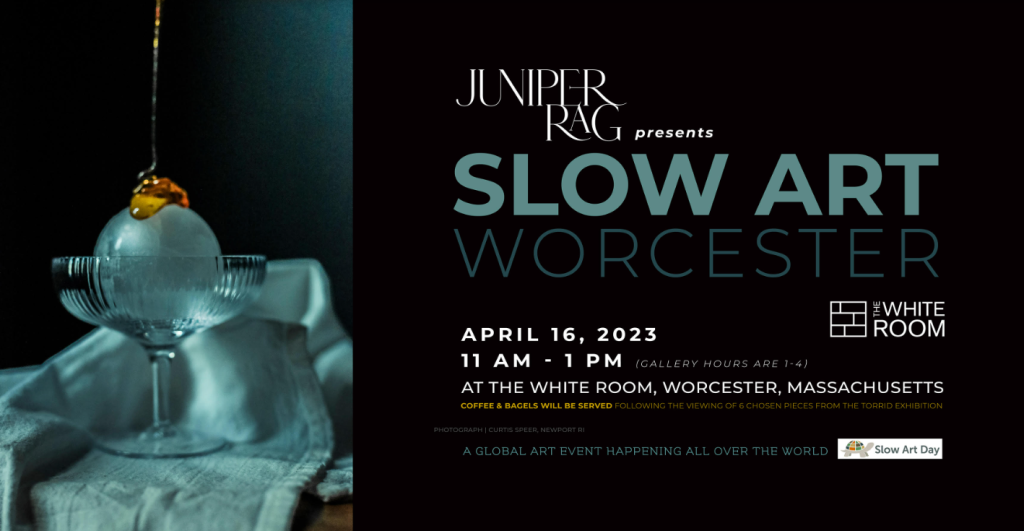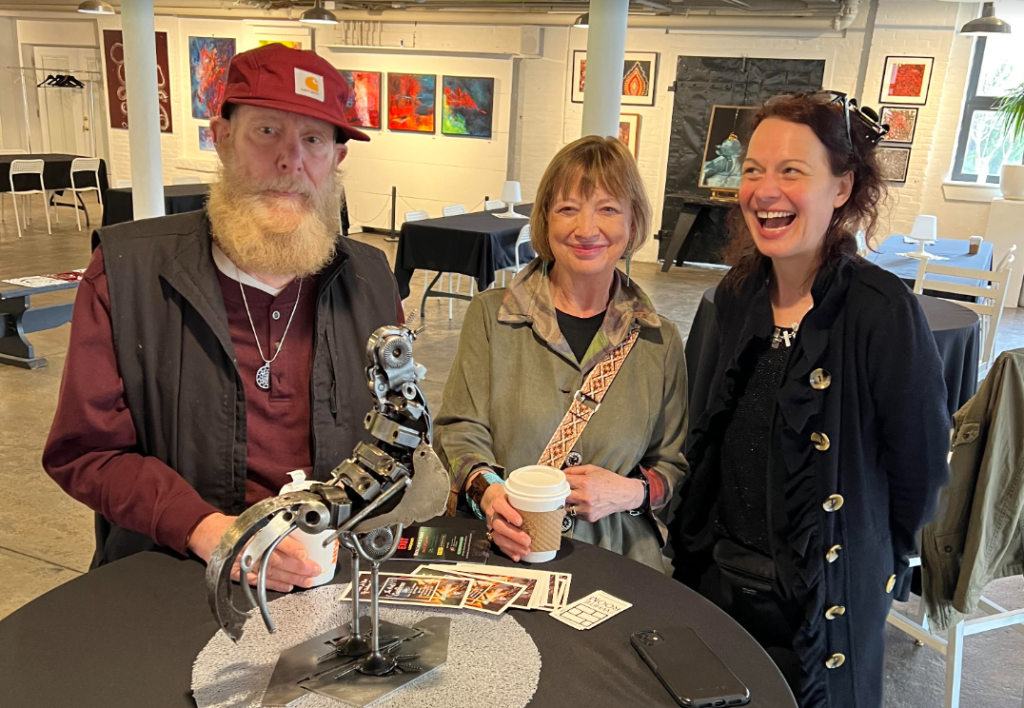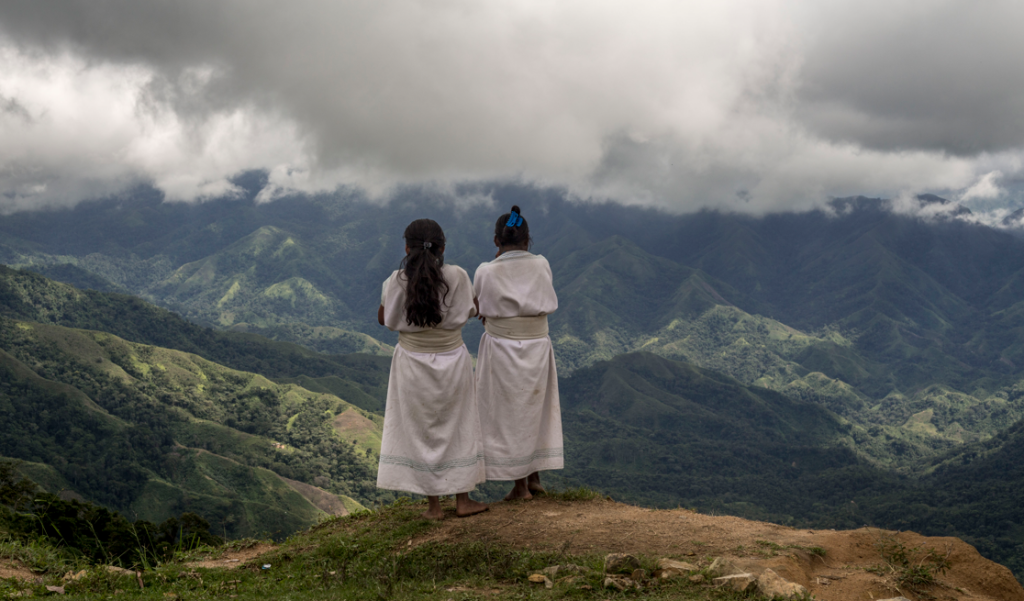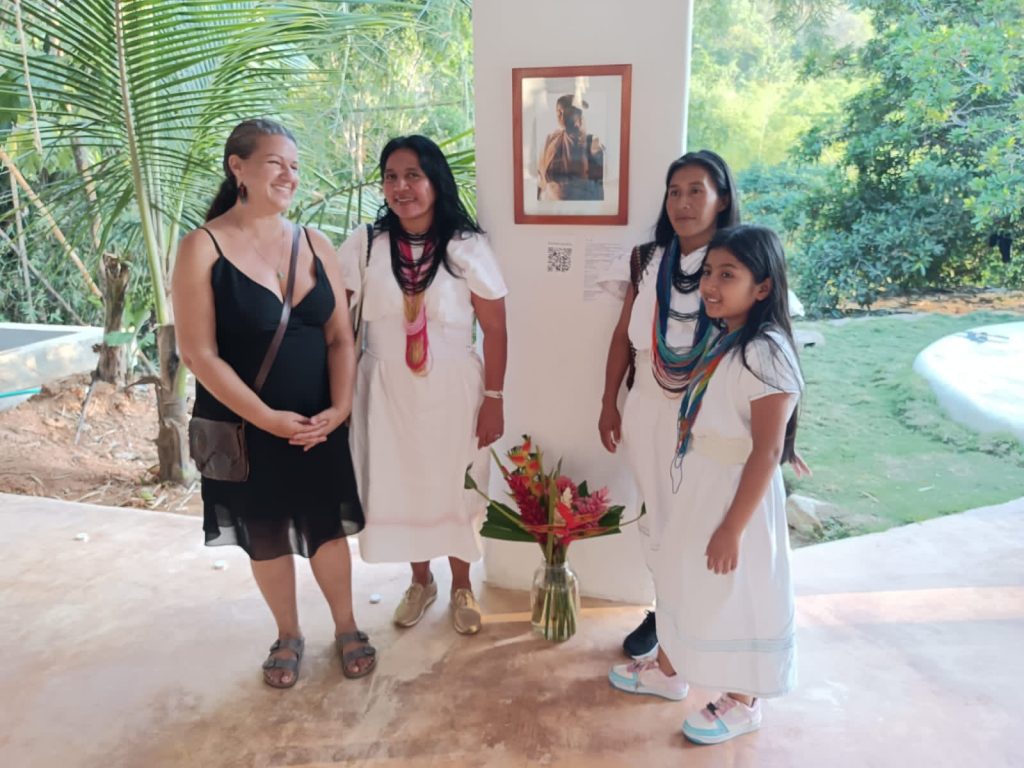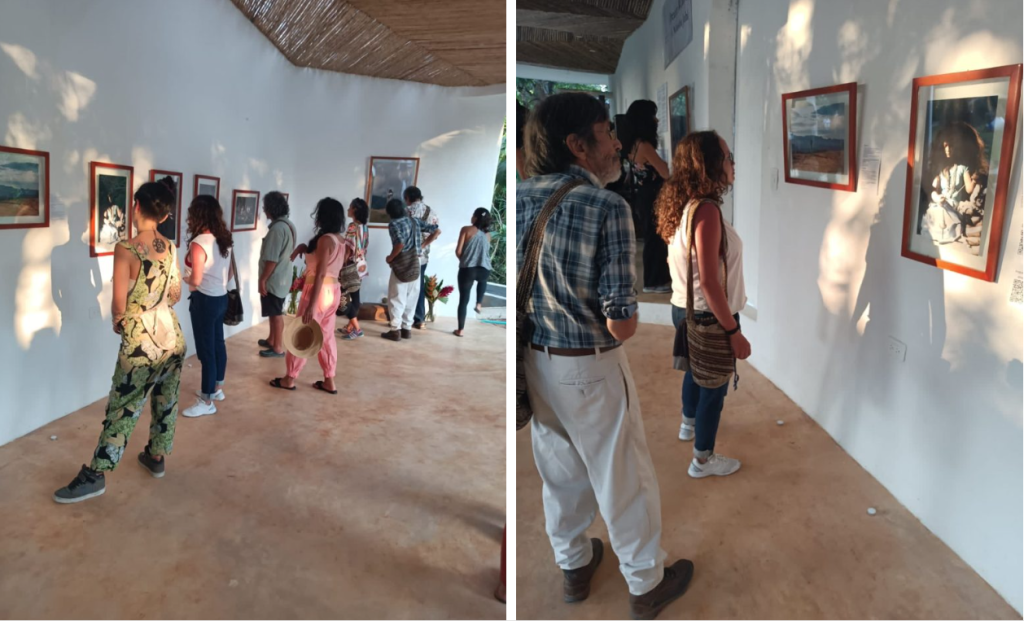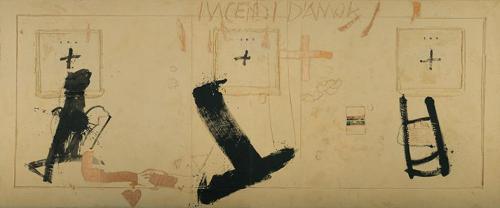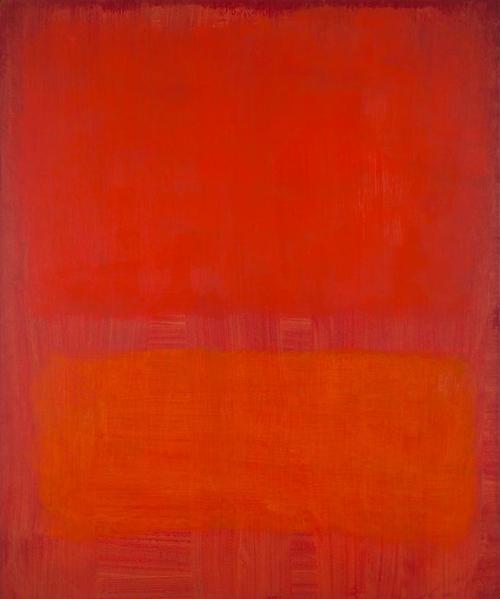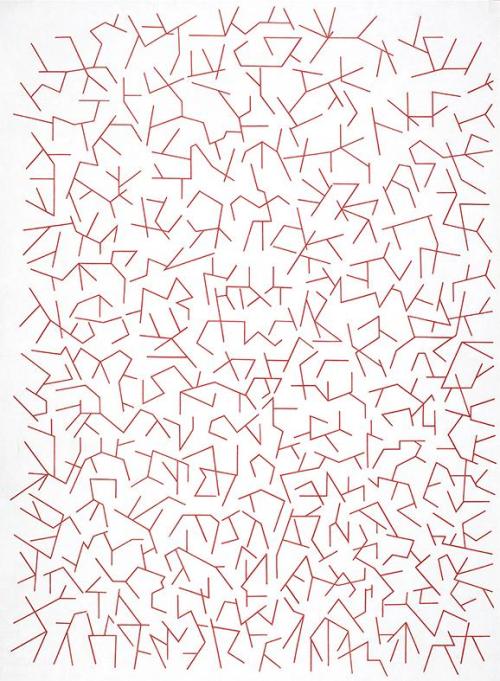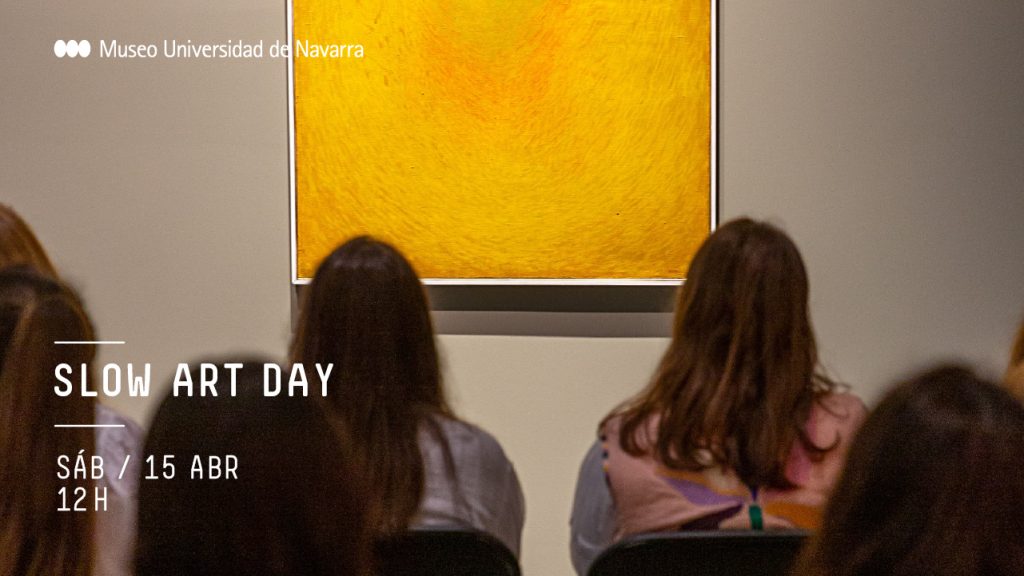For their Slow Art Day 2023, Sweden’s National Museum (referred to as “Nationalmuseum” in Sweden) offered a full day of all kinds of interesting and creative sessions. Museums around the world take heed – this is a great way to celebrate Slow Art Day.
Under the direction of Johannes Mayer who coordinates the public events/programming, Sweden’s Nationalmuseum started Slow Art Day with a slow yoga class amongst sculptures in the sculpture yard, in the morning at 8:30 am before the museum opened. Participants were led by yoga teacher Victoria Winderud and the session ended with a fresh smoothie served in the café beneath.
Wow. We wish we could have been there.
Then, once the museum opened, young visitors (5-11 years old) were invited to go on a slow looking tour of a handful of paintings in the collection, led by museum staff, between 10:30 and 11:15 am. At 2 pm, adults were invited to do the same.
But that was not all.
There was also a storytelling session at the beautiful Strömsalen (a large room with both paintings and sculptures), led by Sara Borgegård, Intendent Pedagog for the museum (roughly – the “Superintendent of Pedagogy”), who told a saga based on one of the sculptures in the room.
Wait. There was more.
All day long, the Nationalmuseum offered “drop-in art-chill” sessions at the sculpture-hall/yard, where visitors could sit or lay down on a yoga mat and listen to a pre-recorded session, slowly observing the beautiful room.
And even that is not all.
Finally, all visitors could borrow a slow-looking guide to explore and discover works of art at their own slow pace.
Wow. Wow. Wow.
What a great design.
See some fabulous photos below.
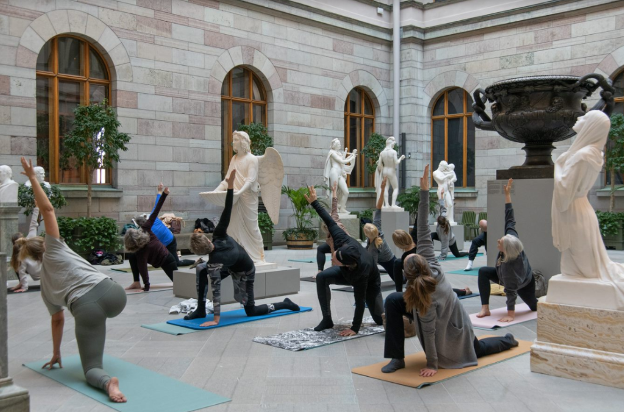
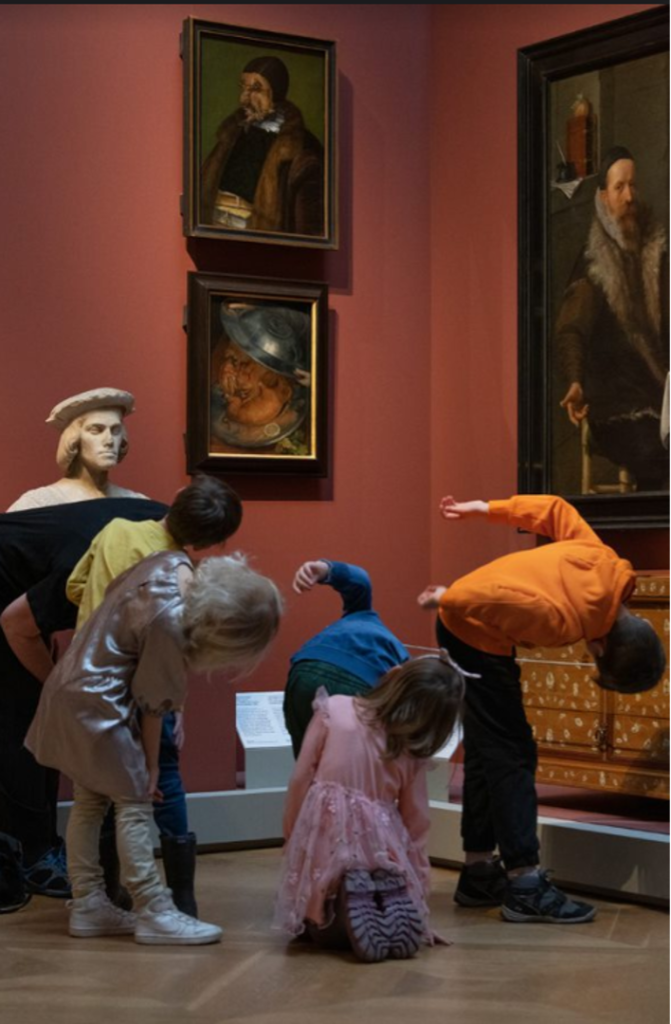
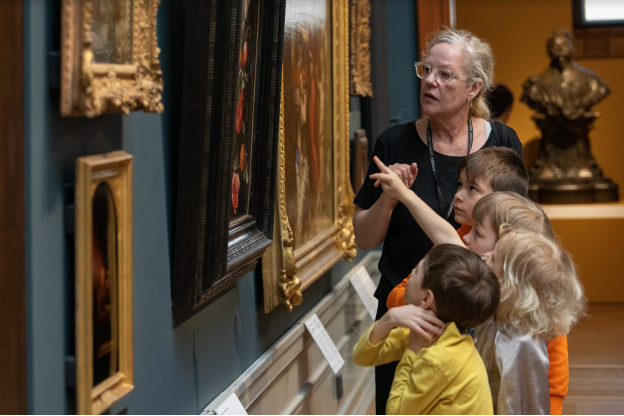
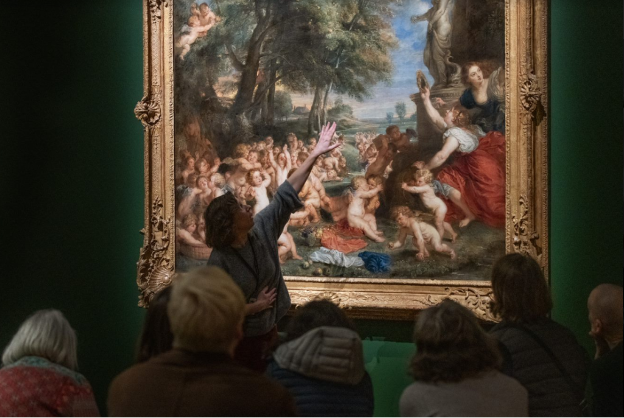
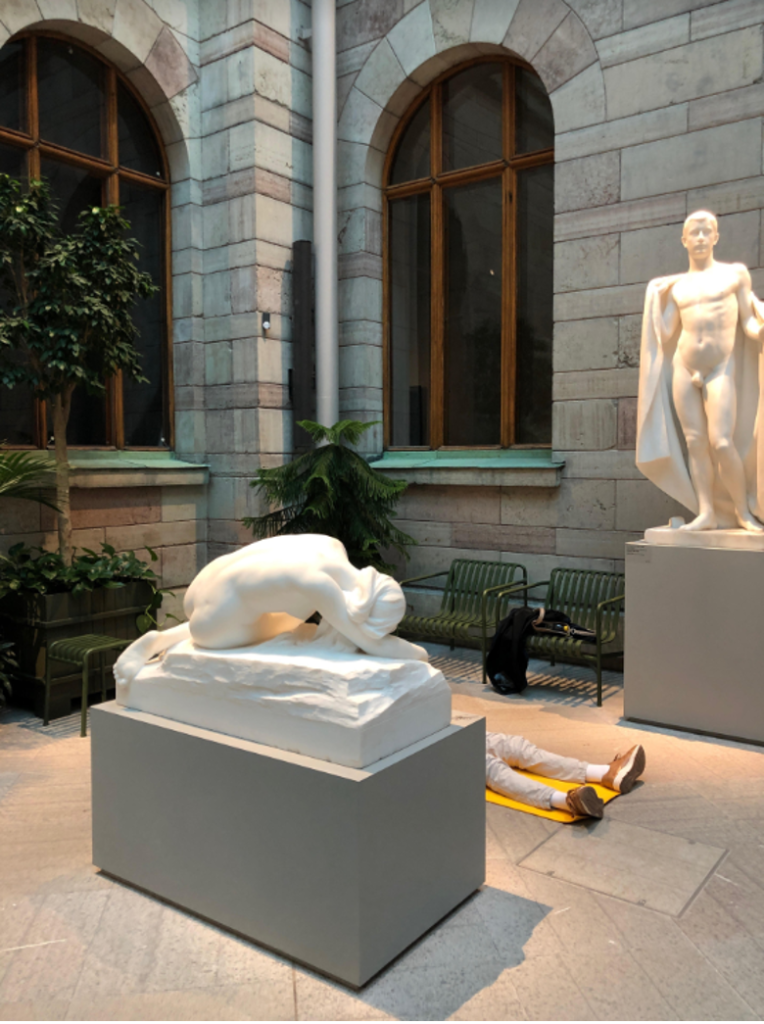
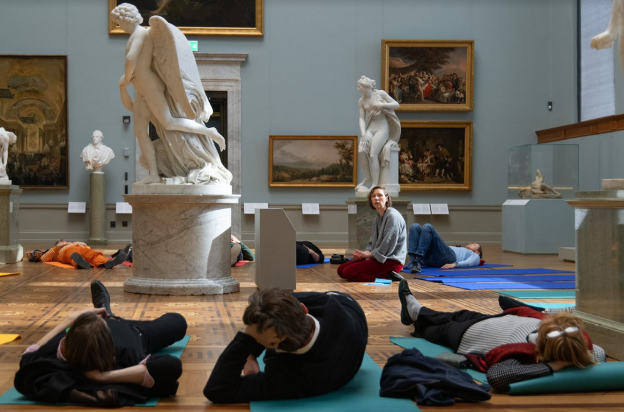
The Nationalmuseum team of Sara Borgegård Älgå, Johannes Mayer and Helena Sjödin Landonthere tell us they are looking forward to Slow Art Day 2024, especially as they continue to receive such great feedback from visitors (note: 2023 was their fourth Slow Art Day). Further, since Slow Art Day usually happens around Easter and many tourists are in town, they plan to offer some of the programs in English as well as Swedish, to make it accessible to even more people.
Wow. We can’t wait to see what they come up with for Slow Art Day 2024.
– Phyl, Johanna, Ashley, and Jessica Jane
P.S. The Slow Art Day team has decided to ask the Accademia Gallery of Florence if they would host a yoga session around the statue of David. Right? Let’s all go!

